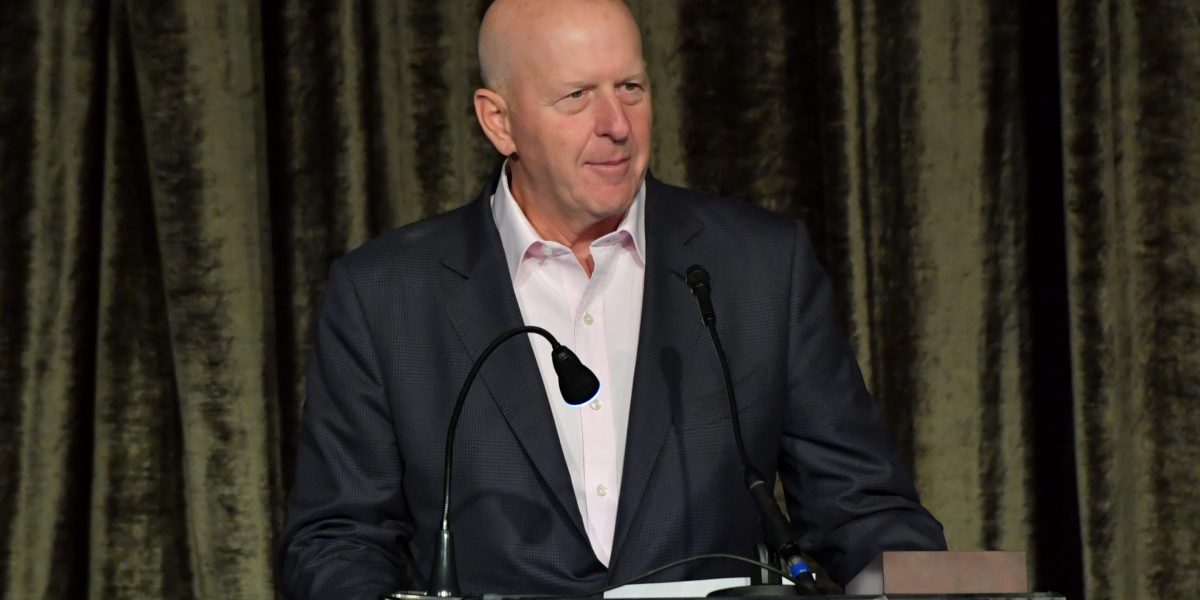Goldman Sachs and the return of ‘Blockchain not Bitcoin’

#Goldman #Sachs #return #Blockchain #Bitcoin [ad_1]
Here we go again. The CEO of Goldman Sachs, David Solomon, published an op-ed in the Wall Street Journal headlined “Blockchain is much more than crypto,” which claims there’s a future for the technology—so long as that future gets to be determined by a small group of powerful people. Here’s a selection from the op-ed:
“I still see blockchain as a promising technology if allowed to innovate under the right conditions. Under the guidance of a regulated financial institution like ours, blockchain innovations can flourish,” Solomon wrote (emphasis mine). “Although some blockchain start-ups are calling for regulatory oversight, not all have the capability to meet such requirements because they are young organizations.”
You get the idea. The message from the Goldman CEO, in essence, is that the only way crypto and blockchain can be viable is if they are left to big banks like his.
For crypto veterans, this is like sitting through a bad movie for a second time. The first time around was in 2014-15 when, as now, a crypto bubble had popped and scandals abounded. The title was different—”Blockchain not Bitcoin” was the popular cry back then—but the plot is the same: Put your trust in the banks to create a private and safe version of blockchain rather than relying on public chains Bitcoin and Ethereum.
This plan didn’t work then, and it won’t work now. The first time around, big banks threw more than $100 million at a consortium called R3 led by a corporate suit with the right connections to Wall Street. Over the years, companies like R3 have produced little even as decentralized crypto communities have unleashed a wave of innovations such as Layer-2 solutions, zero-knowledge proofs, NFTs, and staking.
While private blockchains will never compete with public ones on a technology basis, there’s a risk big banks like Goldman Sachs will use their clout in Washington, D.C., to make their vision of blockchain the only one that’s legally viable. This would be a bad outcome. Imagine if when Congress wrote key laws in the 1990s to oversee the Internet it did so in a way that handed control of the web to the likes of AT&T, AOL, and Verizon.
Blockchain, including cryptocurrencies, is too important a technology to let this happen. As Solomon himself writes in his op-ed, blockchain offers a faster and superior way to confirm transactions related to finance, stock trading, and real estate. He is right and those applications are just the tip of the iceberg. Goldman Sachs should be praised for embracing blockchain—so long as Solomon and his banking friends are willing to let everyone else do the same.
Jeff John Roberts
jeff.roberts@fortune.com
@jeffjohnroberts
DECENTRALIZED NEWS
Ethereum developers are targeting March for the so-called Shanghai update, which will let users remove staked ETH. (Bloomberg)
HiveMapper, which seeks to challenge Google Maps by awarding tokens to drivers who record street data with a $649 camera, is shaping up to be a boondoggle. (Fortune)
The SEC issued new guidance requiring public companies to disclose their exposure to crypto assets and FTX. (CNBC)
A profile of Rep. Tom Emmer (R-Minn.) reveals the incoming House majority whip to be a longtime crypto advocate whose industry ties could blunt more aggressive regulatory effects. (WaPo)
After days of evasion, Sam Bankman-Fried said he will testify at a House hearing on Dec. 13 but didn’t say if he’d appear in person. (NYT)
MEME O’ THE MOMENT
[ad_2]
Source link
